

Chevette carb modifications
Please note: I have removed some important
text and photos from this page, because I learned that last year the page was copied, and
I lost considerable business because of this. As I am in business to make money, and this
is all I do for a living, I feel that this step is prudent.
Most of you probably don't know that Watts Carburetion Service is preparing a lot of the
winning carbs in Ohio, KY, and Tennessee, because the owners won't tell you !!
I hope this doesn't hurt any feelings, but if you're interested in getting
the best Damn Chevette carb modifications performed anywhere, for whatever purpose, give
me an email, or a call !
Prices for Chevette carb modifications are below.
It will take a while for the photos to load, please be patient. Thank you !
(Photos were kept small to enhance load time )
Here is a shot of a stock Chevette carb, left, and one that has been "modified" on the right.
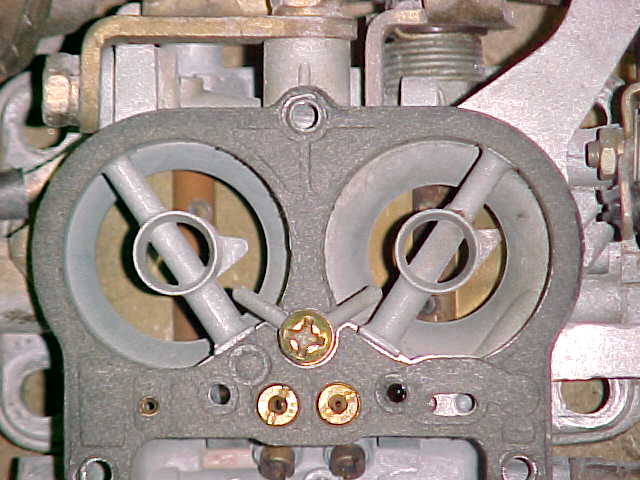
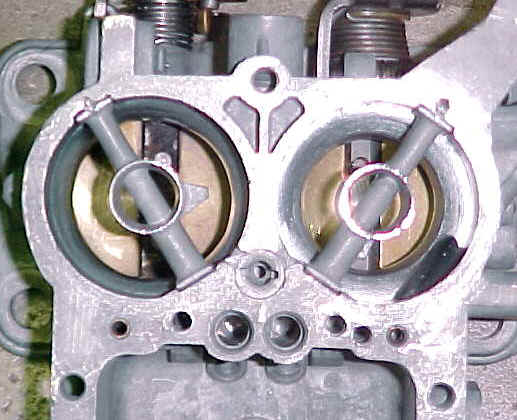
The stock carb on the left has an approximately 26/32" primary venturi, with a 1 2/32" secondary venturi. After "modification", the primary is enlarged to 1", the secondary to 1 6/32". This increases air flow considerably. The appropriate fuel metering changes are made of course. Idle circuit changes are included, and necessary when an oversize cam is used.
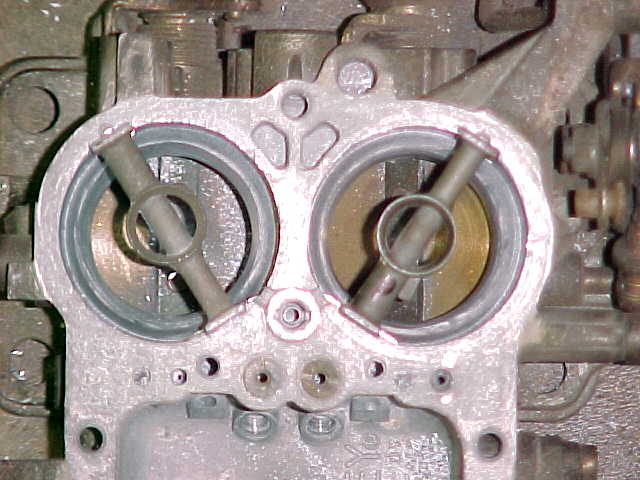
You might take note that this carb has significantly LARGER
venturi's. That is a Chevette carb, Holley list 9939 after modification. As you can guess,
this carb will probably flow just a bit more air.
The 9939 that I used has a large primary venturi to begin with. It is original
equipment for the 1980 Chevette, all transmissions w/AC, Federal emissions. I have some
measurements, for example, the small venturi carb started life at about 13/16" before
cutting, and could have gone to a little over 1" . The large carb was finally
enlarged to 1 5/32" ! I have no idea where this carb came from, it was in a bin
and had been in there for years until I worked on it. I wish I could find more !
TEXT REMOVED FOR SECRECY ! SORRY.
Note the photo below:
TEXT AND PHOTOS REMOVED FOR SECRECY ! SORRY.
Note the photo below:
TEXT AND PHOTOS REMOVED FOR SECRECY ! SORRY.
If you need a little more idle fuel because you have a big cam, check out the photo's below:
TEXT AND PHOTOS REMOVED FOR SECRECY ! SORRY.
The screw that you see laying there is really all that is needed
to pull the tube. Caution is advised of course. The small opening on the bottom of the
tube is the actually idle orifice, and it is tiny ! You should acquire a wire drill set to
modify these items.
I have been asked what to do about the electric bowl vent. On a street car, I would
suggest leaving it in place and operational. The bowl vent directs fuel vapors to the
evaporation canister, and is a good emission control device. For racing, simply leave it
in place and ignore it. If you want to, remove the components under the air horn,
but leave the upper diaphragm in place along with the cover. Otherwise, you will have a
huge gaping hole in the air horn (top) of the carb. Not good. In the photo below, the
components are placed in order of assembly. The spring, rubber seal, and e-clip go on the
diaphragm stem under the air horn.
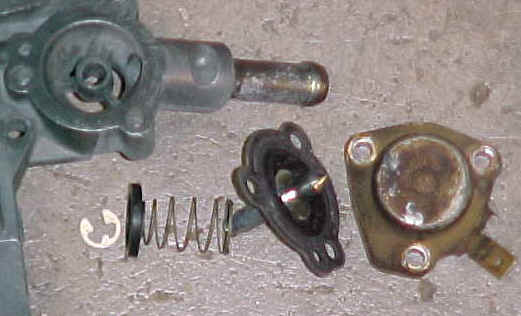
This carb will be tested soon on a dirt track racer:
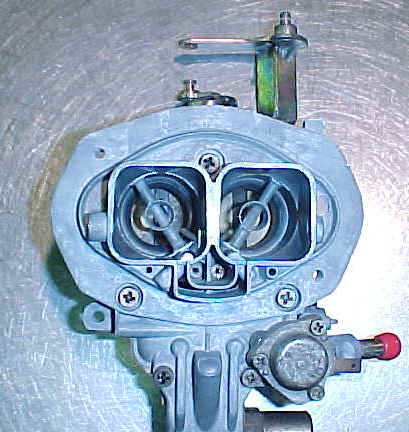
.... and I'll let you know the results. I'm keeping notes on jetting, idle circuit mods, and bleed sizes. If anyone is interested in these mods, or needs further info, keep watching this page, or email me.
* Currently, this carb will be initially tested with jet sizes of .
TEXT AND PHOTOS REMOVED FOR SECRECY ! SORRY.
Test results will be provided when available. I don't have a gas Chevette, so must rely on "testers".
Update, April 26, 2001 ! Final calibration results ! ( so far )
All jets are being hand drilled as this is the most expedient method. These jets are difficult to acquire at best, and although I don't like to hand drill jets, it is a viable alternative. Measurements are being taken with a plug gauge set.
The big 5210 Holley 9939 ( as seen above ) is running with:
.TEXT AND PHOTOS REMOVED FOR SECRECY ! SORRY.
This carb has had both venturi's increased to 1-5/32" !
The smaller Holley 5210 version is running with:
TEXT AND PHOTOS REMOVED FOR SECRECY ! SORRY.
This carb has had the primary venturi size increased from
13/16" to 1", and the secondary was enlarged to
1- 5/32". These venturi's cannot be made any larger. See above !
These carbs would perform fine on a street engine, as most of these "racing"
engines are using almost entirely stock components. With the addition of a choke assembly,
I would expect nothing short of flawless performance on a street engine, when calibrated
accordingly.
To see costs of getting these modifications performed, click here.
Further updates to occur as necessary.